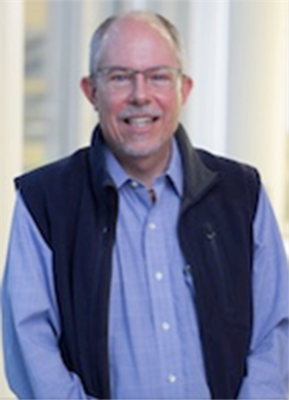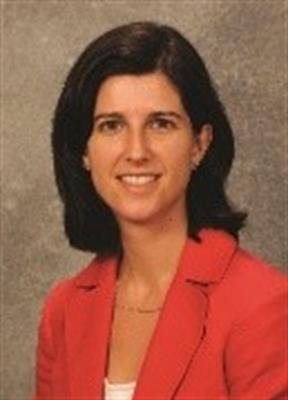Investigator Spotlight
5 Questions for Researchers

Donald E. Nease, Jr., M.D.
Professor and Vice Chair for Community | Dept. of Family Medicine
Director of Community Engagement & Research | Colorado Clinical and Translational Sciences Institute
Director - State Networks of Colorado Ambulatory Practices & Partners (SNOCAP)
Dr. Nease is a Professor of Family Medicine at the University of Colorado – Denver, where he serves as the Green-Edelman Chair for Practice-Based Research, Director of Community Engagement for the Colorado Clinical and Translational Sciences Institute, Vice-Chair for Community in the Department of Family Medicine and Director of the SNOCAP Practice-Based Research Network Collaborative. He completed his undergraduate degree and medical school at the University of Kansas, residency at the Medical University of South Carolina in Charleston and a Faculty Development Fellowship at the University of North Carolina – Chapel Hill. Dr. Nease’s passion is to improve health in partnership with communities, patients, clinicians and their practices.
He works this territory from the level of individual interactions to community to community and population-based interventions.
https://orcid.org/0000-0001-8323-3720
Why is your area of science important?
Engagement of practices and communities in the process of discovery is critical to ensuring that our research not only address the needs of frontline care and communities but that it also can be rapidly implemented and sustained. Too often in health research we’ve been guilty of a “if we build it, they will come” or “ if we research it, they will use it” approach. We know that doesn’t work. Fortunately, those who fund research are coming around to this as well and looking for evidence of stakeholder engagement. Meaningful engagement has a methodology, just like many of the other methods we use, and following those methods can bring amazing impacts to the trajectory and quality of our research.
What was important in your Health Services Research training?
I’ve been fortunate to have fantastic mentors throughout my career that have helped me develop my engagement methods expertise. When I was at an early career stage, there weren’t a lot of places where you could do course work or find training in engagement as a part of health services research training. I had to rely on good mentorship and willingness to track down expertise.
What are the major take-home messages your current research provides?
Patients and community members are extremely interested in partnering to improve the quality of primary care. They are invested in the clinicians and staff where they receive care, and they have good ideas about how to improve that. They just need to be asked and encouraged that their input is valuable.
What are your goals or areas for future research?
I’m trying to knit together the Practice-based research network and community engagement worlds in just about everything I’m doing. There is a symbiotic relationship between the two, or at least can and should be if we bring them together. There is much that community partnerships can do for practices that want to engage in the area of social determinants of health and as I said earlier much that community can contribute to how care is delivered.
What advice do you have for researchers who want to work in this area? OR What is the most important advice you have received from your mentors?
Be humble and authentic in your work with stakeholders. Start early and enjoy the journey as you engage with people. Find good mentors and follow your passion.

Darcy A. Thompson MD, MPH
Associate Professor of Pediatrics, Section of Nutrition at the University of Colorado School of Medicine
Associate Medical Director, Children’s Hospital Colorado Research Institute
Director, Pediatric Obesity and Clinical Nutrition Fellowship, University of Colorado School of Medicine
Dr. Darcy Thompson is an Associate Professor of Pediatrics in the Section of Nutrition. Her research focuses on reducing health disparities in vulnerable populations. She is specifically focused on the prevention and treatment of early childhood obesity in low-income Latino populations and the care of families with limited English proficiency. To date, a large portion of her work has focused on family, sociocultural, and environmental contributors to lifestyle behaviors in early childhood in an effort to inform intervention design. She has published numerous papers on-screen media use in early childhood. She is experienced in community-based participatory research, qualitative methods, mixed methods, and measurement development.
Clinically she works in the Lifestyle Medicine Program at Children’s Hospital Colorado. She is also Associate Medical Director in the Research Institute at Children’s Hospital Colorado and Program Director for the University of Colorado Pediatric Obesity and Clinical Nutrition Fellowship.
Why is your area of science important?
My research focuses broadly on disparities in early childhood obesity, the intergenerational transmission of obesity, and the care of families with limited English proficiency.
Lifestyle behaviors develop in very early childhood and track throughout childhood. Early intervention is therefore critical to set children up for healthy outcomes including a reduced risk for childhood obesity and related comorbidities. A specific focus on populations facing disparities in childhood obesity and related health outcomes is urgently needed. Studies focused on identifying family, sociocultural, and environmental factors contributing to lifestyle behaviors in early childhood are important to ensuring future family-focused intervention efforts are both culturally and contextually tailored. Screen media use is one lifestyle behavior that starts in early childhood. Given the rapid changes in screen use and the screen-saturated environment of today, further research is needed to understand the impact of screen use in early childhood on child well-being.
Further research is also specifically needed on weight gain in the first year of life, which growing evidence suggests is a risk factor for childhood obesity and related comorbidities. Interventions aimed at promoting healthy lifestyles within families are important to preventing the intergenerational transmission of obesity.
What was important in your Health Services Research training?
Without a doubt, my mentors.
What are the major take-home messages your current research provides?
We need to promote healthy lifestyle behaviors in very early life. This involves meeting families where they are at and delivering interventions that are both culturally and contextually relevant.
What are your goals or areas for future research?
My work focuses on reducing health disparities in underserved populations. I plan to use the knowledge gained in my current work to inform the design of a culturally grounded family-focused intervention promoting healthy lifestyles in early childhood. As a large portion of my work has focused on screen media use, I am also interested in pursuing further research on the relationship between screen media use in families with young children and its relationship with health outcomes in underserved communities. I am also interested in further understanding the intergenerational transmission of obesity and rapid weight gain in the 1st year of life. Finally, I am interested in ensuring health systems provide access to quality care for populations with limited English proficiency.
What advice do you have for researchers who want to work in this area? OR What is the most important advice you have received from your mentors?
Pick an area of research about which you are passionate. This will keep you focused and motivated along the way. Find great mentors, those with experience and a true commitment to your success. I also recommend finding peer mentors. This have been incredibly helpful in my career